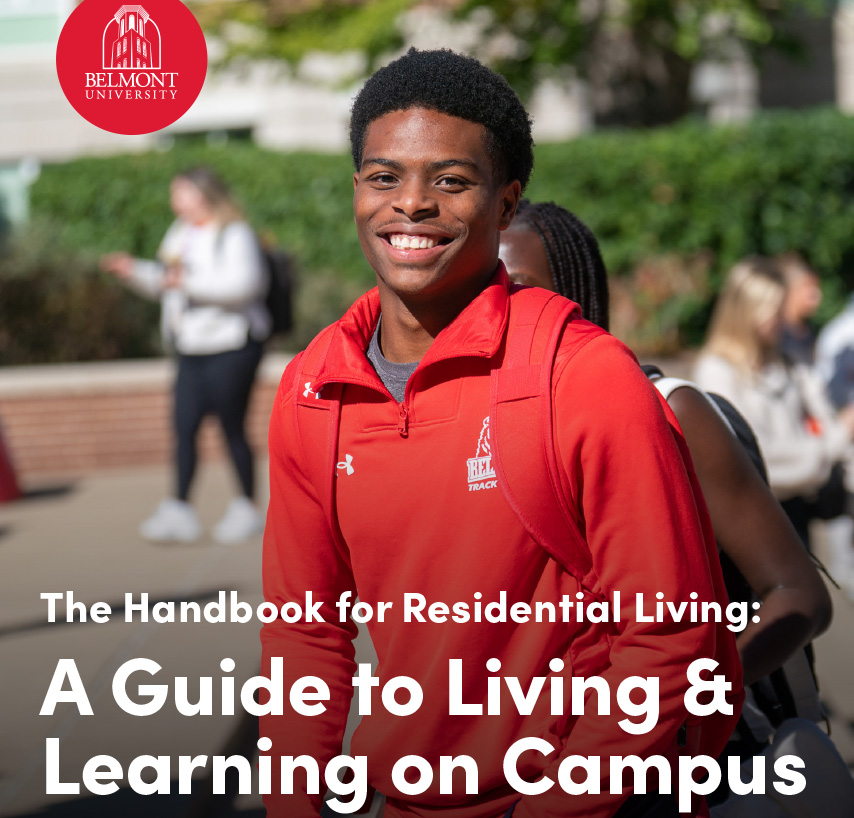

There are a few documents you should be familiar with if living on campus. They provide important information about Residence Life policies as well as Belmont's student policies.

The Bruin Guide is Belmont's student handbook. Included in the Bruin Guide are explanations of our Community Commitments as well as all of our student policies.

The Handbook for Residential Living provides information about Residence Life, our policies, and how to navigate living on campus. It also includes a helpful guide for students about living on campus, services offered by the university, and a complete description of Belmont University's expectations and policies.
The Housing Occupancy Agreement is your "contract" for living on campus. It includes important policies and dates that you should familiarize yourself with as a campus resident. The University Cost Estimator is a helpful tool for planning your college expenses, including housing and meals.
The terms and conditions for living on campus
Costs for Housing and Meal Plan Rates
Part of our mission in Residence Life is to empower students to make successful transitions to college, and part of making that transition successful is learning to live with a roommate. Living and forming relationships with people from different backgrounds is one of the greatest benefits to living on campus. Whether your roommate is a friend from home or someone you are meeting for the first time, your relationship with your roommate can both work and be enjoyable.
At Belmont, all first-year students are required to complete our Roommate Agreement online through our Roompact software. RAs in the residence halls will meet with each roommate pair within the first month of class to discuss their roommate agreement.
Communication is essential to a positive, working relationship between roommates or suitemates. By discussing the topics outlined in the Roommate Agreement, roommates will begin to develop a relationship that is conducive to a positive community and academic environment as well as personal growth. This process will also reduce or eliminate the possibility of conflict and increase communication between roommates.
As a Belmont University residence hall community member, the following are the rights you can expect and have a responsibility to maintain:
Sharing a room and space isn't always easy and can often lead to misunderstanding. If you believe that your roommate has infringed upon your right, express your concern to him/her. Developing a good relationship early on may help you to approach your roommate(s) when you discover an issue on which you do not agree. Also, be aware that your roommate(s) may approach you for similar reasons. If you feel you need further advice, you should speak with your Resident Assistant or Residence Director.
Roommates do not have to be best friends, but they need to live amicably and respectfully. Roommates should share responsibility for the roommate relationship: To have a good roommate, be a good roommate! Learning to live with a roommate without infringing on one another’s rights and freedoms is a valuable part of your education.